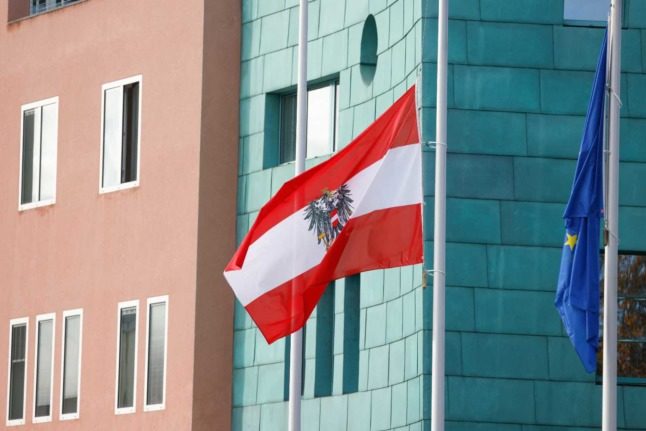Austria’s population is growing, which is necessary for economic growth and maintaining the social system that is such a vital part of the country.
However, the only reason the country keeps growing is because of immigration, according to the statistics institute Statistik Austria.
“Austria’s population is growing solely due to immigration. Without it, according to the population forecast, the number of inhabitants would fall back to the level of the 1950s in the long term”, says Statistik Austria’s director general Tobias Thomas.
READ ALSO: Could Austria change the rules around citizenship?
Since 2015, the share of the population with a “migration background” has risen continuously from 21.4 percent to 25.4 percent, the institute stated. As Austria has about 8.8 million people, this means 2.24 million people have a migration background in the country.
For the survey, Statistik considered people with a “migration background” to be those whose parents were both born abroad, regardless of their own nationality or place of birth. Persons with one parent born in Austria do not have a “migration background” according to this definition.
And while German is still the most common nationality among foreigners in Austria (218,347 people), much has changed since 2015 (when there were 170,475 Germans).
The number of Romanians has almost doubled (from 73,374 to 140,454), bringing them to the second-largest foreigner community in Austria, behind German citizens.
READ ALSO: Why has naturalisation in Austria doubled in 2022 – and who are the new citizens
In 2015, Turkish was the second-largest foreign nationality in Austria (there were 115,433), but they are now the fourth (with 117,944 people), behind German, Romanian, and Serbians (121,643).
Numbers of Ukrainians, Syrians, and Afghanis are soaring
The data shows that the most significant jump in the number of foreigners is from those countries with a recent history of conflicts.
For example, in 2015, there were 11,255 people with Syrian nationality living in Austria, and the number soared to 70,901 in April 2022, almost five times more people.
In early 2015, Austria had 16,779 Afghani residents, a number that jumped 170 percent to 45,394.
READ ALSO: Ukrainian refugees push Austria’s population past nine million
When it comes to Ukrainians, the phenomenon is more recent, and the numbers show that.
While in 2015, there were 8,582 people with Ukrainian nationality living in Austria, on January 1st 2022, that number went to 12,673. And just three months later, after the Russian invasion, it soared to 52,803.



 Please whitelist us to continue reading.
Please whitelist us to continue reading.
Member comments